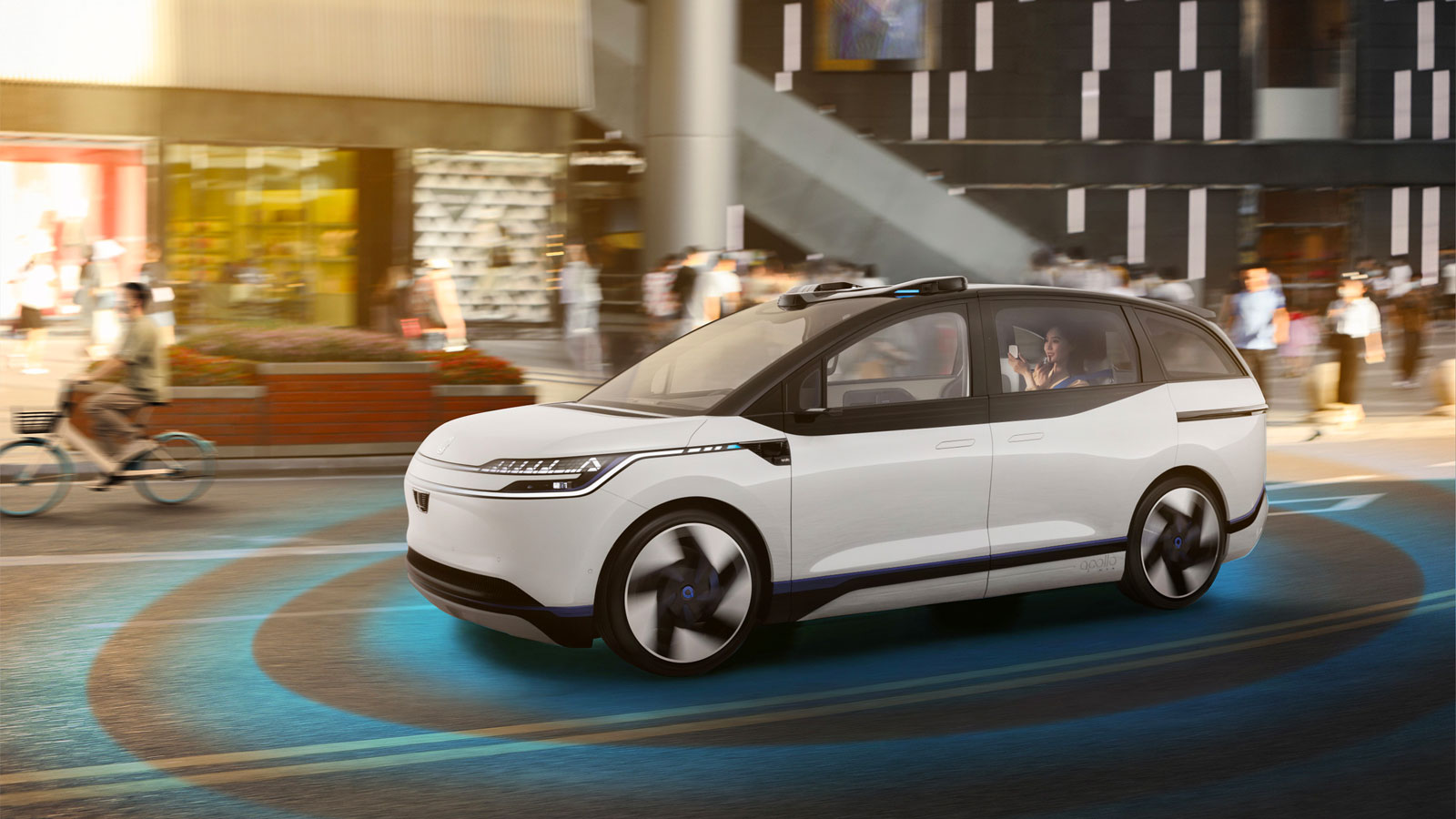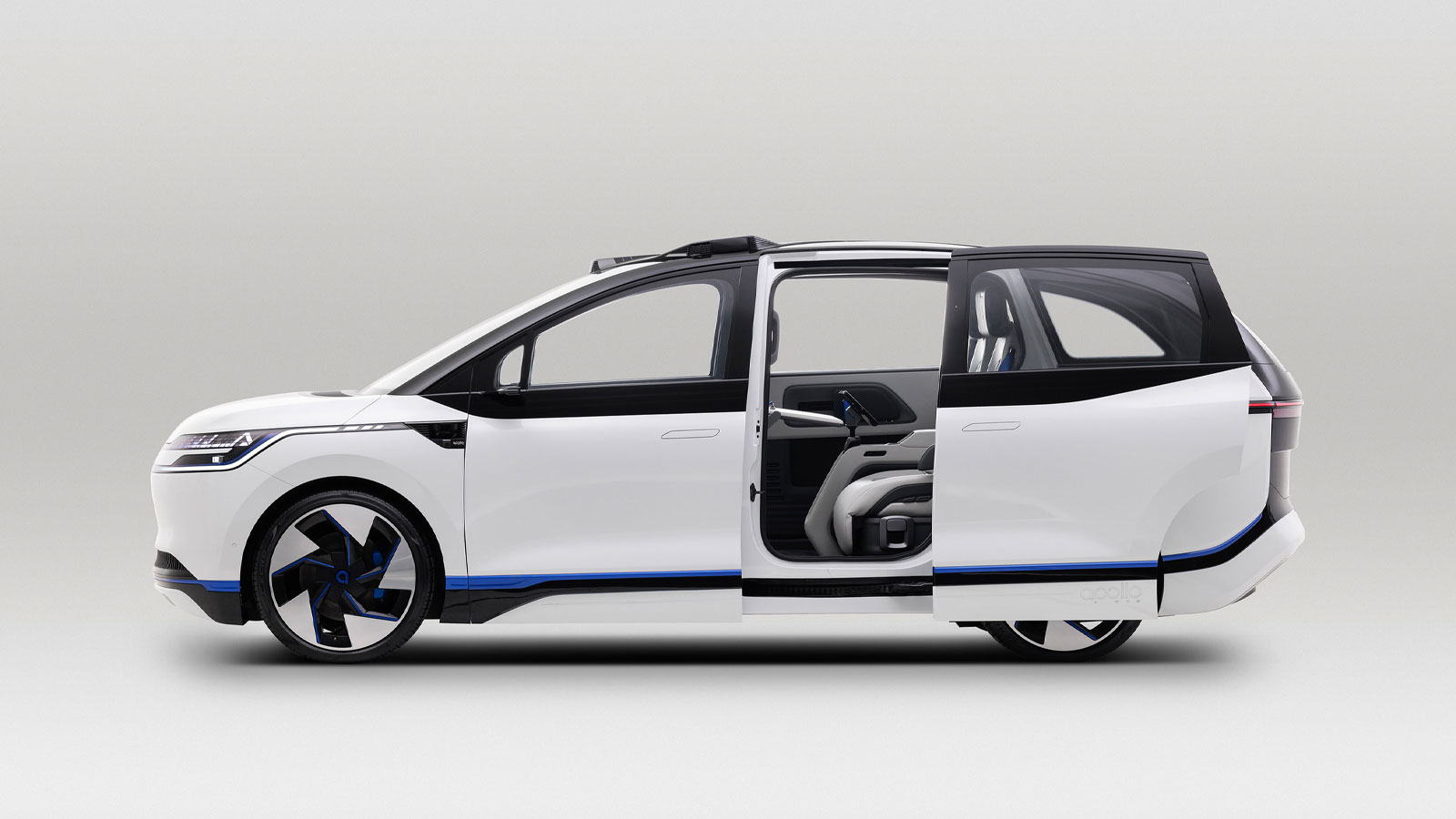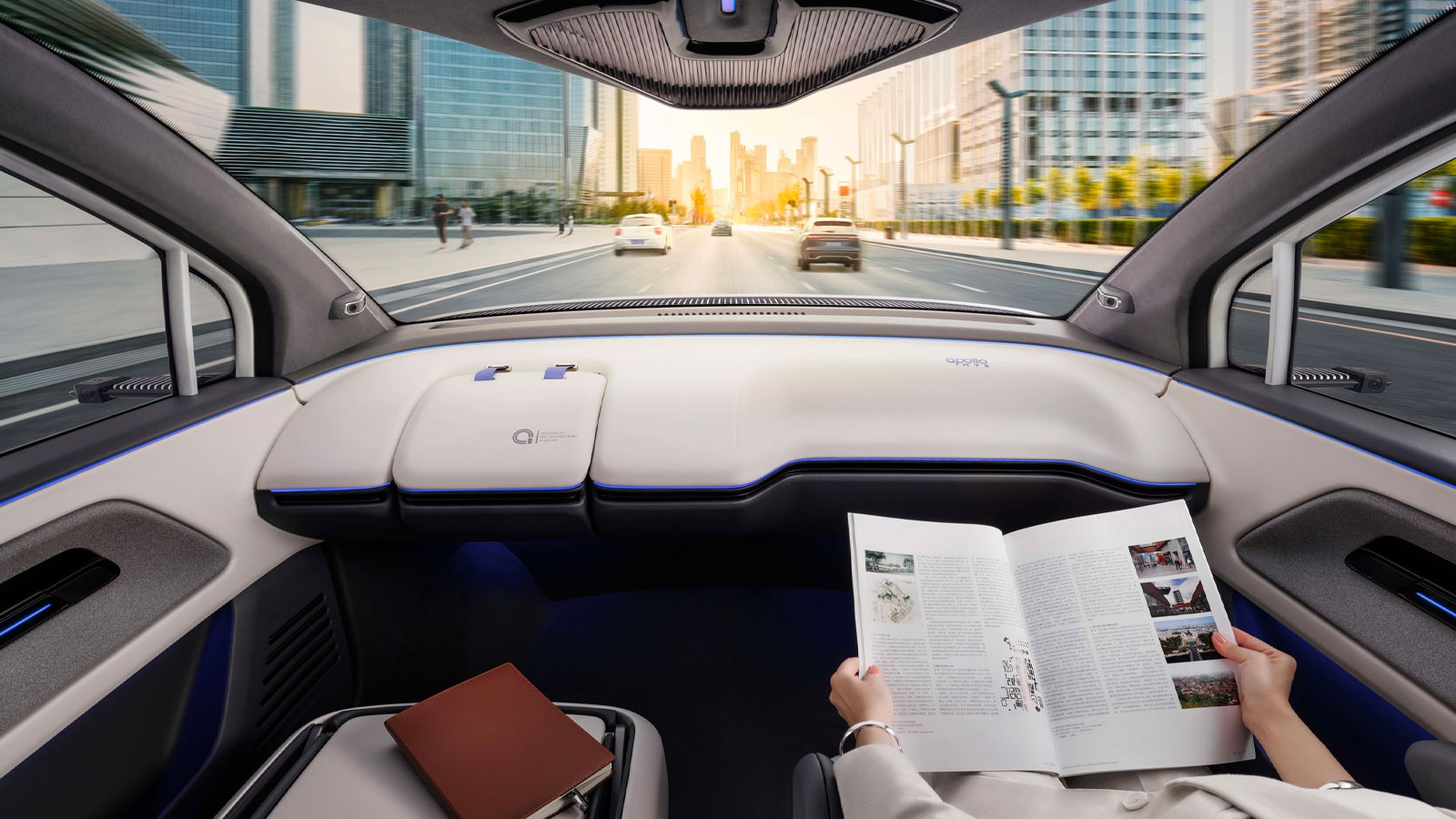Baidu's New Taxi Has A Removable Steering Wheel
The Apollo RT6, an (allegedly) self-driving taxi, will start ferrying riders with, or without, a steering wheel in 2023.
I don't know if you've noticed this, but self-driving cars always seem to be about a year away. The tech is perpetually promised but, so far, hasn't quite lived up to the expectations of consumers. Well now, there's a new "robotaxi" from Chinese company Baidu that might really be a year away from reality.
Chinese tech firm Baidu this week unveiled its Apollo RT6 taxi, which it hopes will roll out across the country next year to begin offering riders autonomous journeys, albeit with a safety driver. CNBC reports:
"The Apollo RT6 is set to start operating on China's roads in the second half of next year under Baidu's self-driving robotaxi business.
"The company's robotaxi business, called Apollo Go, received Beijing city's approval in November to begin charging fares for rides within a suburban district. However, a human staff member must still sit in the car."

The RT6 is Baidu's sixth incarnation of the autonomous vehicle, but, more importantly, it is the company's first fully custom-designed creation. Its past AVs have seen it retrofit its self-driving tech to existing vehicles.
Because of this, the firm was free to do away with some of the things you don't need when your car isn't driven by a human. So first up, Baidu made the steering wheel optional.
In the RT6, the steering wheel can be completely removed. This, the firm says, frees up extra space for the interior, or to fit "extra seating, vending machines, desktops, or gaming consoles."

What's more, this in-house design means the car is no longer festooned with sensors and cameras sticking out from every surface. Instead, Baidu has been able to integrate all 38 sensors required for its long-range imaging onto the car's sunroof, making for a much more elegant finish.
And what about that finish? I think it looks about as inoffensive as you want a taxi to appear. It'll fit in with the traffic nicely, while looking just different enough to stand out when you need to hail a ride.
When it goes into operation next year, Baidu says the RT6 will cost 250,000 yuan (roughly $37,000) to produce. CNBC reports that this is 48% less than the firm's last model, which cost 480,000 yuan (about $71,000) to manufacture.
